Vaccine injects ‘eye opening’ experience: Student-scientists research COVID-19 vaccines
Photo credit: Nicole Farmer
An ICU unit is separated into two rooms to prepare for the surge of COVID-19 cases. Melissa Sharp’s Systems Biology & Disease class researched and studied both vaccines to better inform the greater Archer community through their work.
As Los Angeles County enters the red tier, roughly 2,740,000 people have received the first dose of the COVID-19 vaccine. However, according to a study carried out by The University of Pennsylvania, up to 20% of respondents were generally misinformed about vaccines and their contents.
At Archer, science teacher Melissa Sharp and her Systems Biology & Disease students decided to dispel inaccurate information surrounding the vaccines through their assigned research projects. A biologist herself, Sharp decided to incorporate a brief unit informing her students on the importance of vaccines.
“To understand how the vaccine works in your body, you have to understand what it is [the vaccine],” Sharp said. It [the vaccine] begins to set off in your immune system from B cells to T cells to killer cells to antibodies, so we use that as a platform to understand not only what vaccinations are, [but] we use that as a platform to support our learning of the immune system.”
In learning about the vaccine through this course, senior Shainna Orecklin was “surprised” about the novel nature of the vaccine as well as how quickly it was able to come into fruition.
“I think what’s resonated with me most about it is the difference between the COVID vaccine and previous vaccines like the one for influenza, chicken pox or measles,” Orecklin said. “I think it’s just such a good representation of new technology that we’ve come up with and how speedy everything has been because this new process has been so effective.”
In terms of communicating their research to the greater Archer community, fellow senior and classmate Gaby Ayala emphasizes the significance of sharing these findings and clearing up any sort of confusion surrounding the vaccines.
“There’s so much fear around vaccines because it is something foreign that’s going into your body,” Ayala said. “You really don’t know much about vaccines until you actually do research or learn about them. So what’s been really eye opening has been getting the perspective of someone who’s not taking the course that you’re taking, and really learn how to express that material or teach it to someone who doesn’t know what you’re talking about.”
As someone whose parents are both healthcare workers, senior and student-scientist Nicole Farmer has seen the firsthand effects of the vaccination process outside of the Zoom room.
“I’m more in tune to different things that other people aren’t,” Farmer said. “I’ve seen firsthand the effects that not only my parents but other essential workers are having to go through and the things that having to sacrifice; work and family and having to put one over the other because they don’t want to risk exposing them.”
Echoing her daughter’s sentiments, Gloria Farmer, who is a nurse, believes that information surrounding the vaccine is important for Archer students to be knowledgable on.
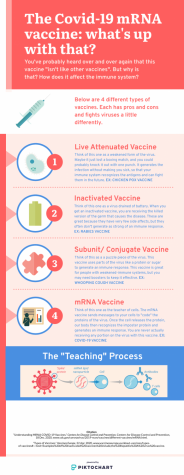
“It’s really important for the Archer community that everybody is aware of the importance of getting the vaccine because if we don’t get a majority of the population vaccinated, we’re not going to reach that herd immunity that is so important so that people can go back to their normal lives,” Gloria Farmer said.
Farmer’s parents, who are both healthcare workers, describe their personal experiences handling the virus as well as the recent implementation of the vaccine and its relevance within society today.
“It’s extremely important that we as a group of humans work together to understand that our actions or inaction can have an extremely negative effect on someone else,” practicing surgeon and Nicole’s father, Douglas Farmer said. “I always tell people who are reluctant to do it [get vaccinated], ‘you don’t want to be the person who gave the virus to somebody who turned around and died from that virus.'”
As more people become vaccinated and more vaccines are approved, Sharp’s students feel that it’s “really important” to continue educating the community.
“I think it just goes hand-in-hand with that you have to keep updating how you respond to the community with new tips and new information,” Ayala said. “To learn stuff that they can really swallow and understand, and like, making it very colloquial and [producing] things that you can understand by just reading a post on social media.”
Reflecting on the work completed in their class, Nicole Farmer discusses the potential risks that come with returning to in-person learning at Archer.
“I think that it’s really important that we understand the risk that we’re putting ourselves, our teachers and our families in, and being able to take precautions, in order to minimize the risk as much as possible,” Nicole Farmer said. “So I think having that information and the infographics that we created [in class] is a way to … express accurate information about social distancing guidelines and vaccines in a way that is applicable and understanding to a larger audience.”
In terms of more common or well-known vaccinations, Sharp commented on the importance of understanding these vaccines better.
“I’d be curious in percentage of the Archer community as to how many students and faculty line up, roll their sleeves up every year and get a flu shot,” Sharp said. “Do you know what that is? Do you know what’s in there? Do you have an idea of what that might do for your immune system or protect you from?”
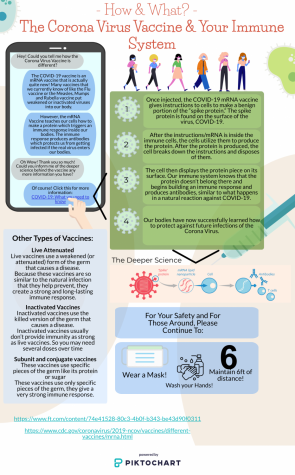
Even when COVID-19 cases begin to subside, Douglas Farmer worries his hospital will see a second surge in cases that will affect patients who do not have the virus.
“So there’s a backlog of people that need regular care. And now we’re going to shift from taking care of all the infected COVID patients to patients that suddenly put off the regular checks and are found to have other illnesses that we’re going to have to scramble to take care of,” Douglas Farmer said.
At the beginning of the pandemic, Gloria Farmer worked as a nurse in a hospital before later leaving to work at a local school. She noted the “support” and “strength” that was displayed amongst the nurses as cases were rising.
“There was a lot of support within the nurses,” Gloria Farmer said. “They were really just being strong and supportive of each other, and in the beginning we had no idea how long it was going to go on. And I just feel that the strength and the support that the nurses were giving each other was something that I remember.”
After her mother was recently vaccinated Orecklin noted “the night and day difference” that it caused for her family.
“It has just been an enormous stress relief off of her,” Orecklin said. “A lot of her friends are vaccinated [and] I found out news that I was going to get to go to Passover dinner, which I didn’t think I was ever going to get to do again. It’s made a huge difference in my life.”
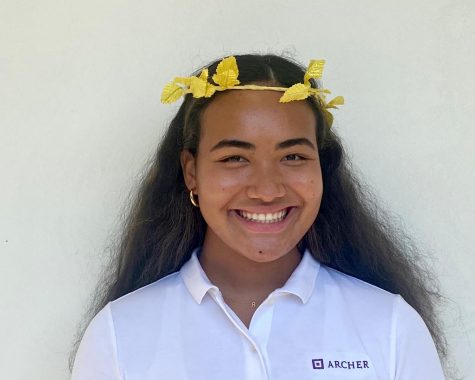
Vaughan Anoa'i joined the Oracle as a staff reporter in 2019 and became the News Editor in 2020. In 2021, she became the Editor in Chief. She loves playing...
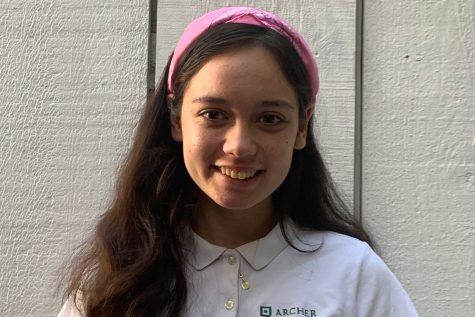
Rio Hundley was involved in the Oracle from 2017-2021. She graduated in 2021. She was promoted to Sports Editor in 2019 and became Features Editor in 2020....



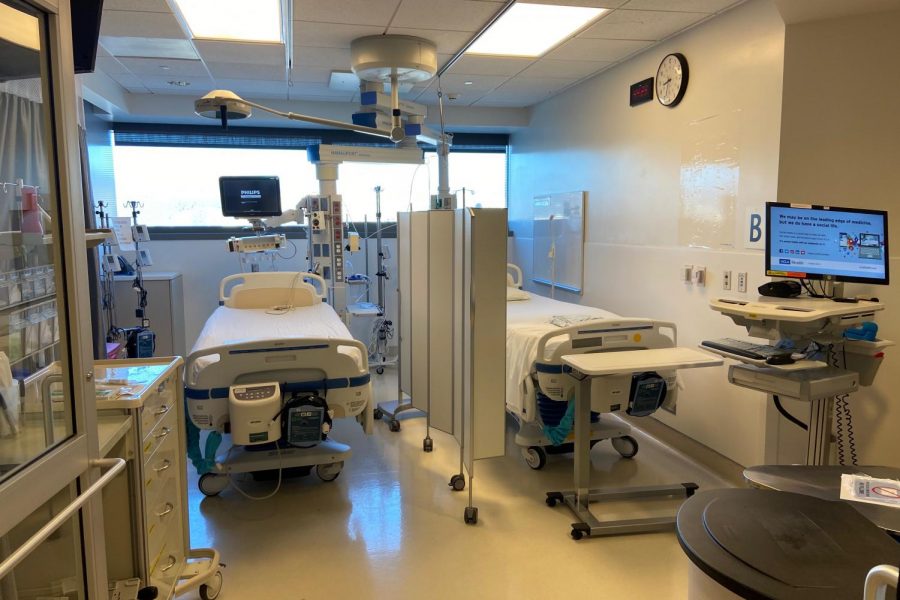
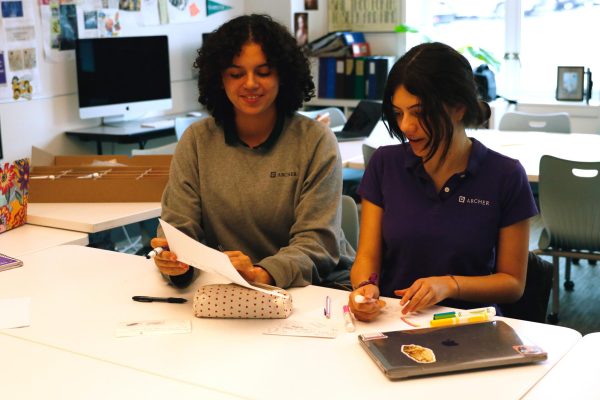




Tiffany Smith-Anoa'i • Mar 27, 2021 at 6:04 pm
Information is power! Loved this article. Great job ladies! Solid quotes throughout and the Picktocharts are fantastic.